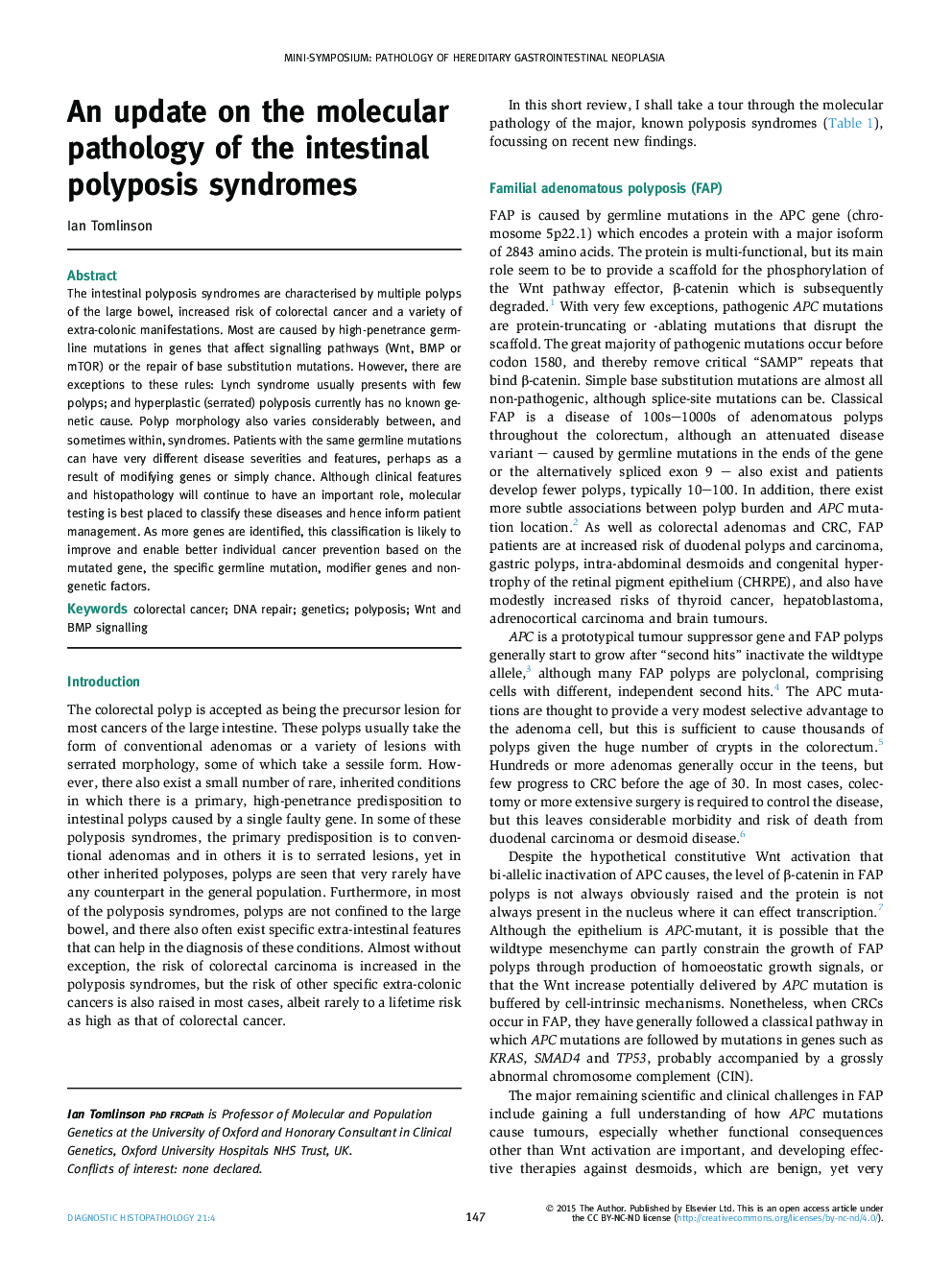| Article ID | Journal | Published Year | Pages | File Type |
|---|---|---|---|---|
| 6215228 | Diagnostic Histopathology | 2015 | 5 Pages |
The intestinal polyposis syndromes are characterised by multiple polyps of the large bowel, increased risk of colorectal cancer and a variety of extra-colonic manifestations. Most are caused by high-penetrance germline mutations in genes that affect signalling pathways (Wnt, BMP or mTOR) or the repair of base substitution mutations. However, there are exceptions to these rules: Lynch syndrome usually presents with few polyps; and hyperplastic (serrated) polyposis currently has no known genetic cause. Polyp morphology also varies considerably between, and sometimes within, syndromes. Patients with the same germline mutations can have very different disease severities and features, perhaps as a result of modifying genes or simply chance. Although clinical features and histopathology will continue to have an important role, molecular testing is best placed to classify these diseases and hence inform patient management. As more genes are identified, this classification is likely to improve and enable better individual cancer prevention based on the mutated gene, the specific germline mutation, modifier genes and non-genetic factors.
